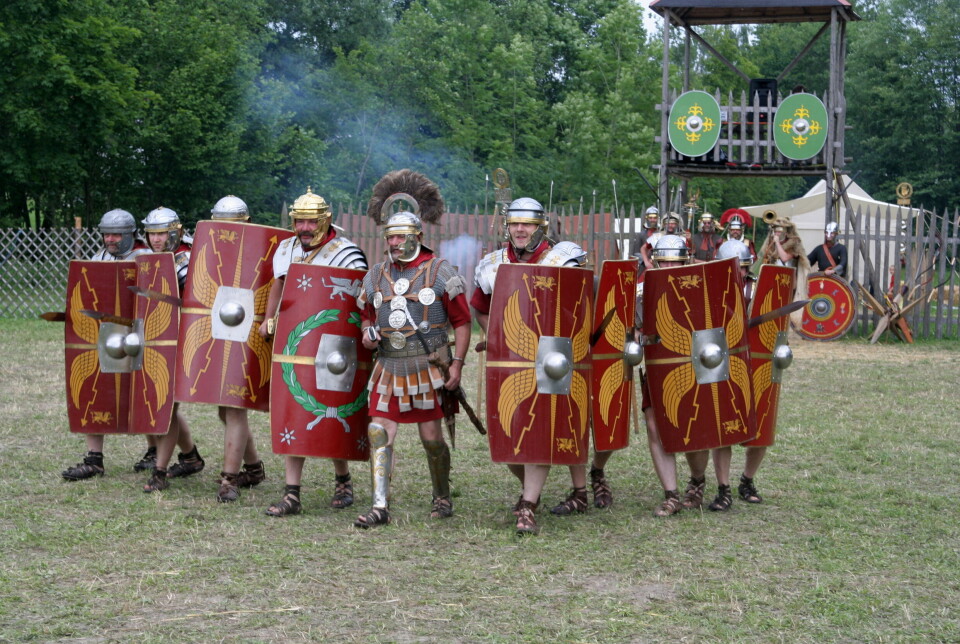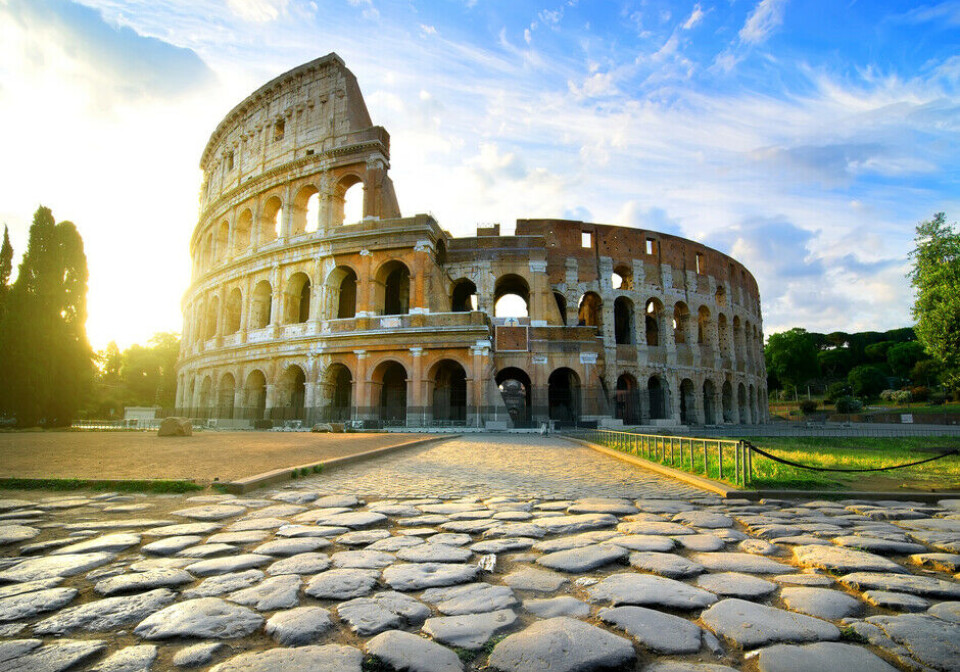THIS CONTENT IS BROUGHT TO YOU BY THE University of Agder - read more

Why do so many men think about the Roman Empire?
What is it about the Roman Empire that captivates the minds of so many? We posed this question to a historian.
You may have noticed the recent trend on social media: Women are asking men how often they think about the Roman Empire, and a surprising number of responses range from daily to monthly.
Below is one of the many videos circulating on both TikTok and Youtube.
But does a history professor at the University of Agder think a lot about the Roman Empire? Not according to him.
However, he believes there is a simple reason why some men do.
“Men, in general, have a greater fascination with war and weaponry compared to women. They also show great interest in historical periods such as the Viking Age and wartime events such as World War II,” Professor Knut Dørum says.
Gained popularity after Russell Crowe
According to Dørum, the surge in interest in the Roman Empire coincided with the release of the film Gladiator, starring Russell Crowe, in the early 2000s.
The history professor emphasises that the film is not entirely historically accurate if you want to learn more about that tumultuous era.
But just like in Gladiator, gladiator battles and slave trade were significant aspects of Roman society.
“The Roman Empire was a military state with 500,000-600,000 professional soldiers tasked with defending extensive territories,” Dørum explains.

At the height of the empire's glory, the Romans ruled over large parts of Europe, North Africa, and the Middle East.
Numerous archaeological discoveries attest to the wealth amassed through plunder and the slave-based economy. The Romans constructed grand cities and villages, amphitheatres, fortifications, and a network of roads.
“Even today, you can walk around in Palestine, Israel, Jordan, Iraq, and other places in the Middle East and encounter infrastructure left behind by the Romans,” he says.

Corruption and power
The Romans' desire for conquest also played a role in the development of several contemporary Western languages.
“Spanish, Portuguese, French, and Romanian are ‘military languages’. They originated from the language of Roman soldiers and underwent subsequent development,” Dørum explains.
While it is easy to form the impression that the Roman Empire was ahead of its time, the history professor emphasises that it also had its negative sides.
“Medical knowledge was rudimentary; the Romans were not very modern in this regard. People died in large numbers from diseases, and lifespans were notably short,” he adds.
There were more poor people than wealthy, and corruption and abuses of power were prevalent.
Took over and crushed the Romans
The modern state as we know it today, with its laws, politics, jurisprudence, economic structures, and democracy, has its origins in the Roman Empire.
Few empires in history have had such a significant impact on subsequent eras, Dørum points out. The Roman Empire was, after all, the first major empire in a European context.
“There are good reasons why the Middle Ages and the Renaissance drew inspiration from the Roman Empire,” he says.
However, every great empire eventually falls. Ironically, the empire the Romans sought to expand became the reason for its downfall:
The Roman Empire grew too large and difficult to govern effectively.
“New ethnic groups, many of whom were enlisted as Roman soldiers and allowed to settle within the empire's borders, inundated and finally crushed the Roman Empire,” Dørum states.
Among these ethnic groups were the Germanic peoples, Visigoths, and Vandals. This is where the term vandalism comes from.
Wants to feminise the Roman Empire
As a professor, Knut Dørum observes that there may be an excessive focus among men on themes related to killings, weaponry, and armies within the field of history.
He believes that there is a need to recruit more women into the field of history to reduce the emphasis on brutality.
“We need to feminise the field of history. War is not a game; it is terrible. We men should embrace interests beyond arms and warfare, focusing on subjects that women care about. History should not be reduced to a form of gaming,” he says.

This content is paid for and presented by the University of Agder
This content is created by the University of Agder's communication staff, who use this platform to communicate science and share results from research with the public. The University of Agder is one of more than 80 owners of ScienceNorway.no. Read more here.
More content from the University of Agder:
-
Fear being rejected: Half pay for gender-affirming surgery themselves
-
Study: "Young people take Paracetamol and Ibuprofen for anxiety, depression, and physical pain"
-
Research paved the way for better maths courses for multicultural student teachers
-
The law protects the students. What about the teachers?
-
This researcher has helped more economics students pass their maths exams
-
There are many cases of fathers and sons both reaching elite level in football. Why is that?




































